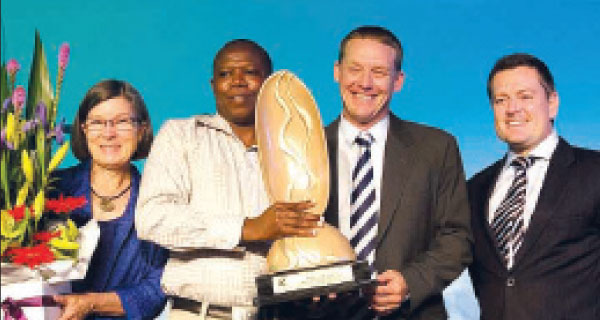×
The Standard e-Paper
Stay Informed, Even Offline
 |
| MRWUA Manager Kennedy Onyango receives the 2013 Riverprize winner’s award. [PHOTO: CHARLES NGENO/COURTESY] |
By CHARLES NGENO
Narok, Baringo: In 2003, the water levels at the Mara River were alarmingly low. This was attributed to uncontrolled human activities in the Mau forest and along the banks of the river.






